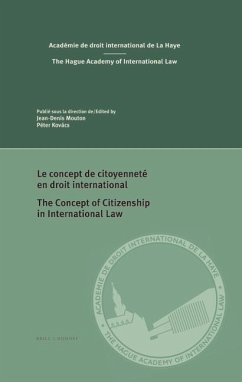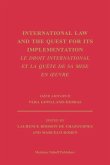Several trends justify why it is worth analysing the concept of citizenship in international law. On the one hand, human mobility enhanced in the last decades of the twentieth century contributed largely to the multiplication of multiple citizenship. The phenomenon of migration, often linked to crises, fosters statelessness and presents new challenges to international law. The internationalization of human rights can accordingly have an impact on the law of nationality. Moreover, within the framework of regional organizations, new forms of citizenship are emerging. This phenomenon, going hand in hand with the traditional, historybased citizenship is also contributing to the challenges that the concept of citizenship faces in international law.







